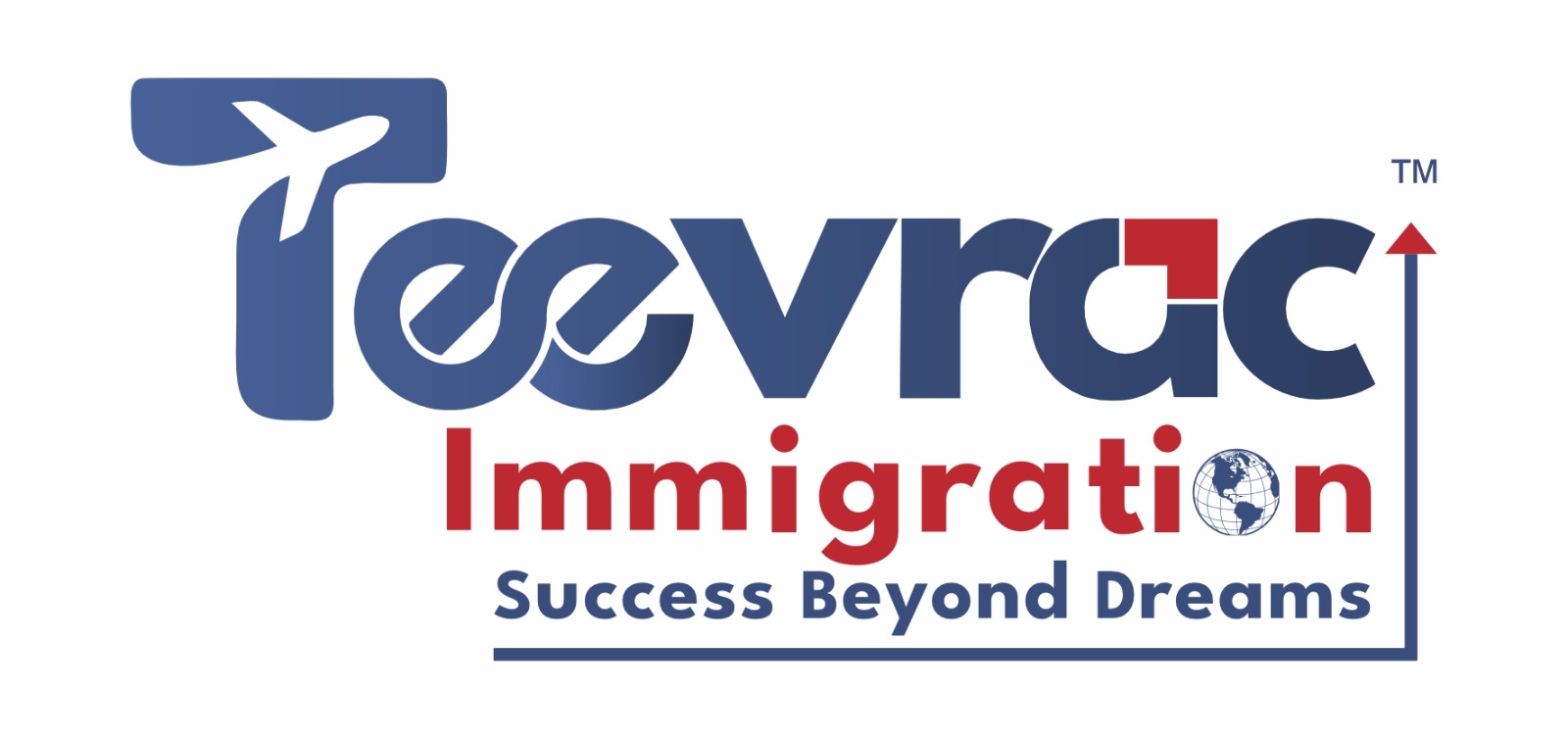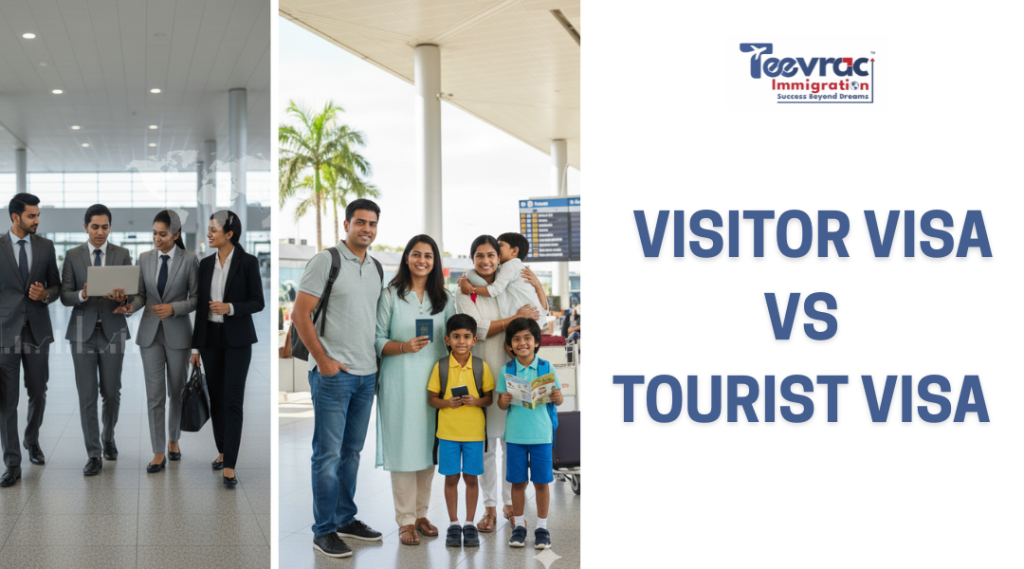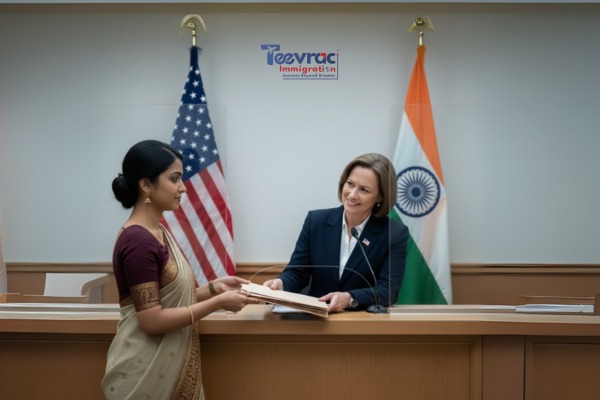Visitor Visa vs Tourist Visa – Understanding the Difference for 2026
Planning to travel abroad in 2026? Here’s the thing — many Indian travelers still get stuck on one simple question: Should I apply for a visitor visa or a tourist visa?
Both sound similar, but they serve different purposes. Choosing the wrong one could delay your travel plans or even get your application rejected. Let’s break it down.
What Is a Tourist Visa?
A tourist visa is meant for short-term leisure travel. It’s ideal for those who want to:
- Explore a country’s attractions
- Visit family or friends briefly
- Go on a vacation or holiday
A tourist visa doesn’t allow you to work, study, or engage in business meetings. It’s purely for recreation and sightseeing.
Example:
If you’re visiting Australia, Canada, or the UK for a 10-day family vacation, you’ll apply for a tourist visa.
What Is a Visitor Visa?
A visitor visa covers a broader range of purposes. It can be for tourism, business, medical visits, or even meeting family members for extended stays.
It’s the right choice if you plan to:
- Attend business conferences
- Visit relatives for a few months
- Undergo medical treatment abroad
- Combine leisure with family or business visits
Example:
If you’re an Indian applicant planning to visit your brother in Canada for two months, a visitor visa is more suitable.
Key Differences Between Visitor and Tourist Visas
| Factor | Visitor Visa | Tourist Visa |
| Purpose | Family, business, medical, or leisure | Leisure or holiday |
| Stay Duration | Usually longer (up to 6–12 months) | Short-term (up to 90 days) |
| Eligibility | Depends on purpose and invitation | Open for leisure travelers |
| Documents Required | Invitation letter, financial proof, medical papers (if applicable) | Proof of travel, accommodation, and funds |
| Work Or Study Permission | Not allowed | Not allowed |
Which One Should You Apply For in 2026?
Your visa type depends on your travel intent:
- Apply for a Tourist Visa if your purpose is vacation or short leisure trips.
- Apply for a Visitor Visa if your visit involves family, business meetings, or extended stays.
If you’re unsure which category fits your plan, it’s best to consult a registered immigration expert like Teevrac Immigration. They’ll review your case, country-specific visa rules, and documentation to ensure you apply under the right stream.
Countries That Commonly Offer Both Visa Types
Here are a few examples where both visa types exist with distinct eligibility:
- Canada: Visitor Visa (includes tourism, family, and business visits)
- Australia: Visitor Visa (Subclass 600) — has separate streams for tourists, business visitors, and sponsored family visits
- United Kingdom: Standard Visitor Visa (covers both purposes under one umbrella)
- United States: B1 (business) and B2 (tourism) visitor visas
Each country has its nuances. That’s why accurate documentation and intent matter more than ever.
Common Mistakes to Avoid in 2026
- Applying under the wrong category – It can cause unnecessary delays.
- Incomplete travel history – Always disclose previous visas or refusals.
- Weak financial proof – Show genuine income and return assurance.
- Ignoring visa updates – Rules may change yearly. Stay updated with verified immigration sources like Teevrac Immigration.
How Teevrac Immigration Helps Indian Applicants
Teevrac Immigration simplifies the process for Indian travelers planning to visit abroad. From eligibility assessment to document preparation, they ensure your visa application is strong, compliant, and purpose-aligned.
Teevrac’s visitor visa services include:
- Personalized visa assessment
- Country-specific guidance (Canada, Australia, UK, USA, etc.)
- Error-free documentation
- Updated visa rule insights
- Mock interviews and file submission assistance
Their expert consultants ensure you don’t fall into the trap of misclassification between tourist and visitor visas.
Quick Tip for 2026 Travelers
Visa systems are becoming more digital and AI-reviewed. This means clarity of purpose and documentation consistency will matter more than before. Always declare the real reason for your visit — it helps both you and the immigration officer.
Final Thoughts
Choosing between a visitor and a tourist visa isn’t complicated once you understand your travel purpose.
If you want expert guidance that saves time, money, and stress — Teevrac Immigration can help you make the right move.
FAQ: Visitor Visa vs Tourist Visa 2026
Q1. What is the main difference between a visitor visa and a tourist visa?
A visitor visa can include family, business, or medical visits, while a tourist visa is only for leisure travel.
Q2. Can I work on a visitor or tourist visa?
No. Both visa types prohibit employment or long-term study.
Q3. How long can I stay abroad with a visitor visa?
Typically up to 6 months, but it varies by country and your purpose of visit.
Q4. Do I need an invitation letter for a tourist visa?
Usually not. It’s optional unless you’re staying with family or friends.
Q5. How can Teevrac Immigration assist with my visa application?
They evaluate your travel intent, prepare accurate documentation, and guide you on country-specific requirements to improve your visa success rate.



